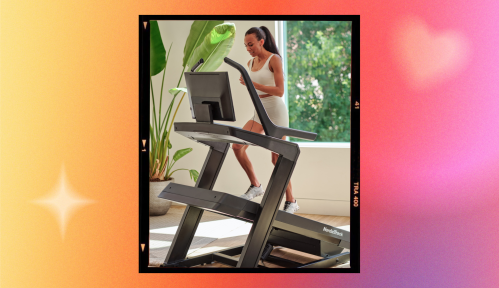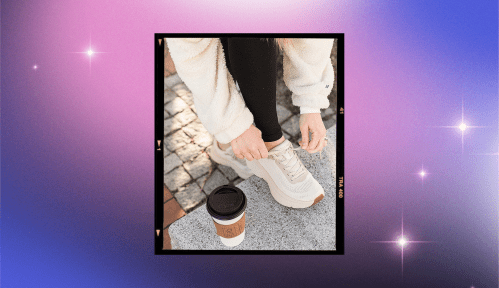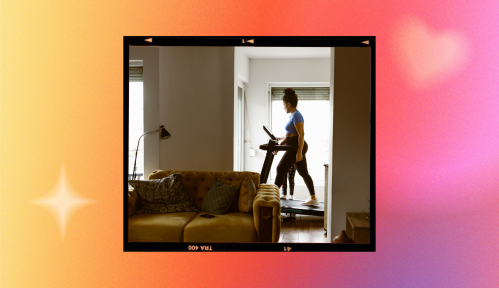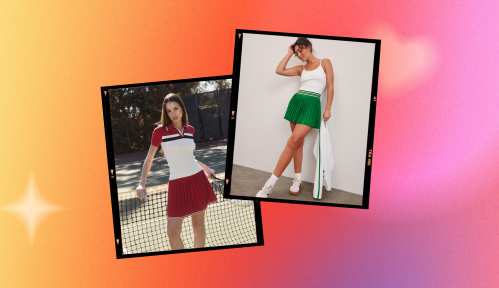Our editors independently select these products. Making a purchase through our links may earn Well+Good a commission
The 7 Best Yoga Mats, According to Yoga Instructors and Enthusiasts
From Lululemon to Manduka, shop seven of the best yoga mats for strong, flowing poses; expert-tested and recommended.
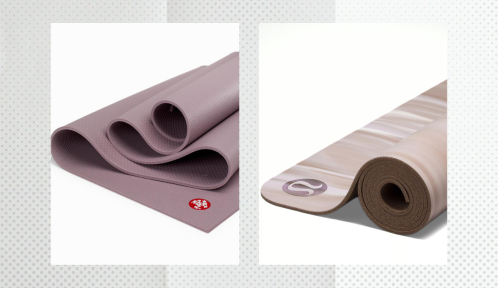
Ask any yoga instructor what their most essential piece of equipment is, and many will undoubtedly answer: a yoga mat. The same holds true for any yogi, regardless of skill level. Investing in one of the best yoga mats can provide grip as you move through poses, as well as support and cushioning between your body and the floor, helping to protect your joints and make lying in Savasana that much more relaxing.
Experts in This Article
yoga and meditation teacher and founder of Academy of Breath
founder of Yohola
pilates instructor and co-founder of The Pilates Class
yoga teacher, self-love advocate, and founder of Love Revolution Yoga
yoga teacher at Studio Three
neuroscientist and yoga teacher at Satori Yoga Studio
Just as there are many types of yoga, there are many types of yoga mats. Yoga mats come in a variety of materials (including polyvinyl chloride, thermoplastic elastomer, and eco-friendly materials, like rubber and cork), and while a standard-size yoga mat is 64 inches long and 24 inches wide, there are also mats that span from 72 to 85 inches long for taller yogis. You’ll also want to consider a yoga mat’s thickness. Your choice will depend on your yoga practice and whether you also want to use it for floor-based exercises, stretching, or Pilates.
All to say, there is no one “best yoga mat” for every body, but to help point you in the right direction, you’ll find a list of seven picks that are recommended by yoga instructors and enthusiasts (including Well+Good staffers).
Best yoga mats, at a glance
- Best overall: Alo Yoga Warrior Mat, $128
- Best budget yoga mat: Gaiam Dry-Grip Yoga Mat, $58
- Best thick yoga mat: Manduka PRO Yoga Mat, $138
- Best rubber yoga mat: JadeYoga Harmony Yoga Mat, $92
- Best splurge: Liforme Original Yoga Mat, $150
- Best reversible yoga mat: Lululemon The Mat, $98
- Best cork yoga mat: Yoloha Aura Cork Yoga Mat, $79
What to consider when shopping for a yoga mat
When shopping for a yoga mat, first consider the material. Yoga mats come in a variety of materials, but they’re most commonly made from polyvinyl chloride (PVC), thermoplastic elastomer (TPE), or natural rubber. Each material has its own advantages and drawbacks. PVC, a high-strength thermoplastic, is incredibly durable, but they can be treated with chemicals like phthalates, lead, and cadmium, all which can have negative consequences on your health and the environment. TPE, also a type of hardy plastic, is considered as more eco-friendly than PVC. However, TPE can potentially contain undisclosed materials that may not be readily recyclable.
If you want to steer clear of PVC and TPE, you can opt for yoga mats made from natural rubber, and if you’re allergic to latex, ones made from materials like cork or jute. Regardless of the material, it’s important to keep in mind that, like most things, yoga mats often end up in the landfill when they’ve reached their end. Until there is a solution, the next best thing is to purchase a yoga mat that you’ll want to use for a long time—and, with proper care and maintenance, it can last you years.
Beyond material, you’ll also want to consider a yoga mat’s size. A standard-size yoga mat is 64 inches long and 24 wide, but if you’re on the taller side or you just want a mat with more room for movement, you can find longer options that range anywhere from 72 to 85 inches in length. Just keep in mind that larger yoga mats will take up more floor space, and if you practice in a yoga studio, will likely be more cumbersome to carry when you’re in transit. Lastly, think about a yoga mat’s thickness. On average, mats range in thickness from 0.25 of an inch (or about six millimeters) to as little as 0.06 of an inch (approximately 1.5 millimeters).
What is the best thickness for a yoga mat?
Yoga mats come in various thicknesses, and your ideal option will largely depend on your preferences. For example, a thick yoga mat provides more cushion, making it great for yoga practices that require you to hold poses for longer periods, such as restorative yoga or Yin yoga. It can also function as an exercise mat, which is typically half an inch thick, to provide adequate cushioning and prevent soreness when performing floor-based exercises. Conversely, a thin yoga mat can provide you with more stability for standing or balancing poses, and it’s also lightweight—ideal for those who want something that is easy to transport, whether you’re traveling to a yoga studio or across the country.
Shop the best yoga mats
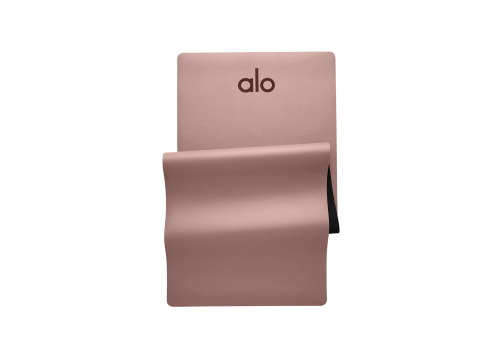
Best overall: Alo Yoga Warrior Mat — $128.00
Fitness instructors, including certified yoga instructor at Studio Three in Chicago Kimberly Ecker and The Pilates Class co-founder Jacqui Kingswell, have repeatedly recommended the Alo Yoga Warrior Mat, earning it the top spot on this list. According to Kingswell: “The Alo mats are very high quality, making them distinguishable from others, and this is what kept me a loyal user of the mats for years and what continues to impress me about their mats.” The mat is made from polyurethane and rubber, and at over 74 inches long and 26 inches wide, it can accommodate yogis of various heights. Its five-millimeter-thick padding also offers ample cushioning. “It’s extra thick and provides the perfect amount of support,” Ava Johanna, founder of Academy of Breath and yoga and meditation instructor, told Well+Good, adding: “It absorbs sweat and has grip so you don’t have to worry about slipping.”
If anything, this yoga mat is a little on the heavier side at eight pounds, but as has been made clear, the pros outweigh the cons.
Material: Polyurethane leather, rubber
Size: 74.4” x 26.4”
Thickness: 5 mm
Weight: 8 lbs
Colors: 7
Pros:
- Recommended by multiple yoga instructors
- Large surface area can accommodate people of various heights
- Made withoutPVC and formaldehyde
Cons:
- Weighs eight pounds, making it the heaviest yoga mat on the list
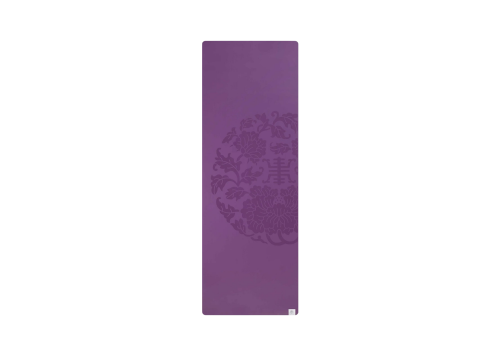
Best budget yoga mat: Gaiam Dry-Grip Yoga Mat — $58.00
Gaiam is known for creating durable and long-lasting yoga mats at affordable prices—and this is one such option that fits the bill. It costs a little more than $58, but offers many of the same features as more expensive counterparts like a non-slip surface and cushy padding. One thing to note: It’s made out of PVC, which might be a tradeoff for people who want to avoid yoga mats that are constructed from the material. If this isn’t an issue for you, you can expect it to last you a very long time. It was the first yoga mat Well+Good commerce writer Danielle Calma purchased on a student budget many years ago, and she continues to practice on it to this day. Calma says, “Apart from the some signs of wear, like curled edges and a cat-clawed surface, it’s as supportive as it was on day one—a testament to its durability.”
Material: Polyvinyl chloride (PVC)
Size: 68” x 24” (also available in 78” x 26”)
Thickness: 5.2 mm
Weight: 5 lbs
Colors: 6
Pros:
- The most budget-friendly option on the list
- Supportive and lightweight design
- Available in two sizes
Cons:
- Made from polyvinyl chloride (PVC), a tradeoff for people who want to steer clear of the material
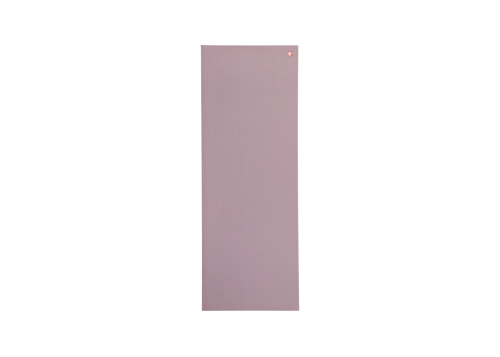
Best thick yoga mat: Manduka PRO Yoga Mat — $138.00
The Manduka PRO Yoga Mat offers a solid combination of support and cushion—and it comes recommended by Ecker. At six millimeters thick, this premium mat will comfortably cushion your body and can be used for yoga, Pilates, or anything in between, though at over seven pounds, it’s on the heavier side. The mat features a closed-cell surface that prevents moisture absorption and excellent traction, especially when paired with a yoga towel. It’s made from Oeko-Tex Standard 100-certified PVC, which means it has been tested to be free of potentially harmful substances like heavy metals, formaldehyde, and plasticizers. (If you would prefer to steer clear of PVC, Manduka also has PVC-free yoga mats made from natural rubber, which have also earned a stamp of approval from many yoga instructors.)
As with all of Manduka’s mats, it’s backed by a limited lifetime warranty that protects against damages beyond normal wear and tear.
Material: Polyvinyl chloride (PVC)
Size: 71” x 26”(also available in 85” x 26”)
Thickness: 6 mm
Weight: 7.5 lbs
Colors: 8
Pros:
- Recommended by Eckler
- Made from Oeko-Tex Standard 100-certified polyvinyl chloride (PVC)
- Available in two sizes
Cons:
- It isn’t ideal for people who want to avoid using a yoga mat made from PVC
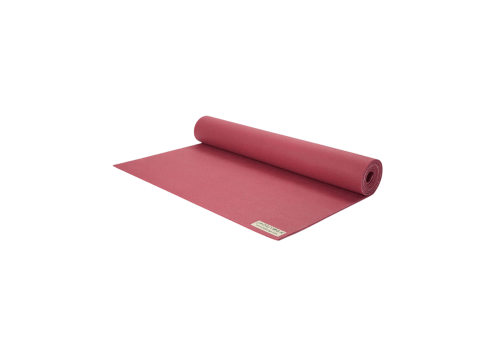
Best rubber yoga mat: JadeYoga Harmony Yoga Mat — $92.00
If you have qualms about purchasing a PVC yoga mat, consider this rubber option from JadeYoga. Its textured surface offers a secure grip, even as your practice starts to get sweaty. At 4.7 millimeters thick, it isn’t as cushy as the previous option—but what it lacks in cushioning, it makes up for with its lightweight design. (To note, it weighs just five pounds.) It’s for these reasons why neuroscientist and Satori Yoga Studio instructor Tara Zinnamon, PhD, among other experts, highly recommends JadeYoga mats. Another reason is that it’s “eco-friendly,” she told Well+Good. “Its mats are made from natural rubber, which is a renewable and sustainable resource.” In addition to being free of PVC, it’s made without EVA and other synthetic materials so you can practice with a little more peace of mind.
Material: Rubber
Size: 64” x 24” (also available in 74” x 24”)
Thickness: 4.7 mm
Weight: 4.9 lbs
Colors: 11
Pros:
- Recommended by Zinnamon
- Made without PVC, EVA, and other synthetic materials
- Available in two sizes
Cons:
- It isn’t ideal for people who want a yoga mat with more cushioning
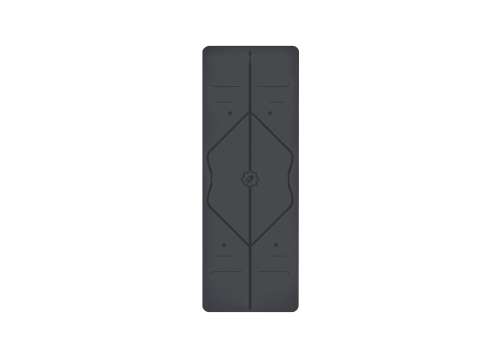
Best splurge: Liforme Original Yoga Mat — $150.00
If you’re willing to splurge on a yoga mat, this pick from Liforme is well worth the investment. For one, it features an anti-slip surface that creates an especially secure grip. Calma, who also uses the mat, says, “The surface is like adhesive, making it impossible for your hands and feet to slip out of place—no matter how sweaty your practice.” However, she notes that its surface also makes it a dust magnet. Additionally, it’s a little over four millimeters thick. It provides just enough cushioning between your body and the floor, but not so much as to throw you off balance when attempting more challenging poses. As a bonus, it has “alignment markers” etched into its surface, indicating where you should place your hands and feet to ensure proper form throughout your yoga practice.
The mat itself is made with eco-polyurethane and rubber, plus it comes with a free carrying bag. It’s also available in a travel-size version that’s thinner, lighter weight, and a little less expensive.
Material: Eco-polyurethane, rubber
Size: 72.8” x 26.77”
Thickness: 4.2 mm
Weight: 5.5 lbs
Colors: 9
Pros:
- Made without PVC
- It has “alignment markers” that help people maintain proper form
- Comes with a free carrying bag
Cons:
- Its slip-resistance surface makes it prone to collecting dust and debris on its surface
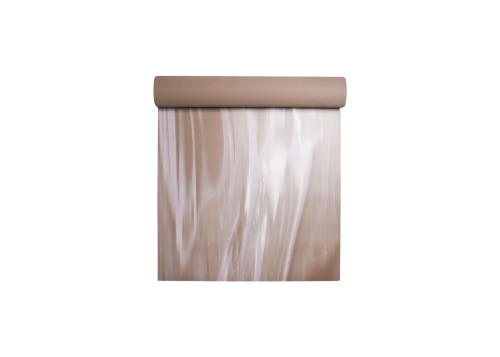
Best reversible yoga mat: Lululemon The Mat — $98.00
This Lululemon yoga mat is reversible. One side is made from FSC-certified rubber for lower-intensity yoga practices, and the other is made from polyurethane to offer extra grip for sweatier endeavors. As such, it’s ideal for people who like to engage in different types of yoga. Either way, it can handle any amount of sweat. “I’ve sweat puddles on this mat,” Kimberlee Morrison, founder of Love Revolution Yoga and yoga instructor, told Well+Good—and no matter how hot, humid, or sweaty things get, she has attested that it doesn’t lose its grip. At five millimeters thick, it also provides ample padding between your body and the floor. This mat measures 71 by 26 inches, but if you’re interested in a larger version, Lululemon has a similar option that’s 13 inches longer for taller yogis.
Material: Polyurethane and rubber
Size: 71” x 26”
Thickness: 5 mm
Weight: 5.2 lbs
Colors: 7
Pros:
- Recommended by Morrison
- Made from FSC-certified rubber—and without PVC
- Available in a longer version
Cons:
- According to the manufacturer, the color will inevitably fade over time
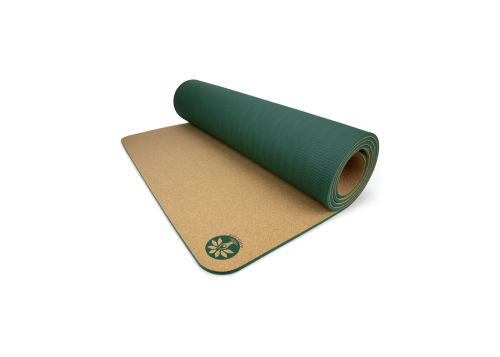
Best cork yoga mat: Yoloha Aura Cork Yoga Mat — $79.00
Originally $99, now $79
If, for any reason, you want a sustainably made yoga mat that isn’t constructed from rubber, consider this option from Yoloha. It’s made from a combination of cork and thermoplastic elastomer (TPE) to provide yogis with a strong slip-resistant surface under sweaty conditions. According to Yoloha founder Chris Willey in a previous Well+Good interview, cork releases a waxy substance called suberin when wet, and it should help your hands and feet stay firmly in place. Even better, cork touts antimicrobial properties, meaning it could prevent bacteria from sticking to the surface of the mat—keeping in mind that it doesn’t absolve you of the responsibility to clean your yoga mat regularly. Despite being six millimeters thick, the mat is fairly lightweight at a little over five pounds, making it easy to transport to a yoga studio or around your house.
Material: Cork and thermoplastic elastomer (TPE)
Size: 72” x 26” (also available in 80” x 26”)
Thickness: 6 mm
Weight: 5.5 lbs
Colors: 13
Pros:
- Designed to provide strong slip-resistance
- Well-padded but lightweight at a little over five pounds
- Available in two sizes
Cons:
- Made with thermoplastic elastomer (TPE), which may contain materials that aren’t readily recyclable
Sign up for the Well+Good SHOP Newsletter
Get exclusive deals on wellness, beauty, fitness, and food products that have been hand-picked by our editors.
Got it, you've been added to our email list.

